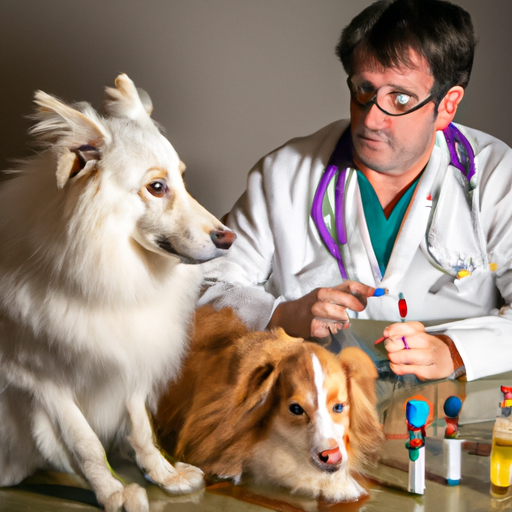As a caregiver, one of your main responsibilities is ensuring that your adorable canine companion stays healthy and happy throughout their life. Vaccinations play a crucial role in this, protecting them from various illnesses and diseases that could otherwise be life-threatening.
Here’s a comprehensive guide, written in the comforting ‘second person’ voice, to help you understand the necessary vaccinations your dog needs, when they need them, and why they are so crucial for their well-being.
H2: Understanding the Importance of Vaccinations
Vaccinations are designed to stimulate your dog’s immune system, helping them develop immunity to certain diseases. Without these vaccinations, your dog is at risk of contracting various illnesses that could be detrimental to their health.
- Core Vaccines: These are a must for every dog, regardless of their age, breed, or lifestyle. They protect against diseases that are widespread, severe, or transmissible to humans.
- Non-core Vaccines: These are given based on your dog’s lifestyle and risk of exposure.
H2: Core Vaccinations for Your Dog
The following are the core vaccinations that your dog absolutely needs:
- Rabies: This fatal disease can affect all mammals, including humans, making it a legal requirement in many places.
- Distemper: A contagious and serious viral illness with no known cure.
- Parvovirus: A highly contagious viral disease that can lead to life-threatening illness.
- Adenovirus (Hepatitis): A viral disease causing liver or kidney damage.
| Vaccine | Age to Administer |
|---|---|
| Rabies | 12-16 weeks, then every 1-3 years |
| Distemper | 6-8 weeks, then every 3-4 weeks until 16 weeks old |
| Parvovirus | 6-8 weeks, then every 3-4 weeks until 16 weeks old |
| Adenovirus | 6-8 weeks, then every 3-4 weeks until 16 weeks old |
H2: Non-core Vaccinations for Your Dog
The non-core vaccinations are:
- Bordetella Bronchiseptica: Prevents “Kennel Cough,” which is highly contagious.
- Leptospirosis: Bacterial disease that affects the liver and kidneys.
- Lyme Disease: Transmitted through tick bites.
Your vet will help you decide if your dog needs these shots based on their lifestyle and risk factors.
H2: The Timing and Frequency of Vaccinations
Puppies should start their vaccinations at around six to eight weeks old. They will then follow a vaccination schedule that includes multiple shots over several weeks. Adult dogs may need yearly boosters. Always consult with your vet to determine the best vaccination schedule for your dog.
H2: Possible Side Effects of Vaccinations
Like any medical procedure, vaccinations can cause side effects. Most are mild and short-lived, including:
- Fever
- Sluggishness
- Loss of appetite
- Swelling at the injection site
Contact your vet if you notice any worrying symptoms after your dog’s vaccination.
FAQ
Q: Can vaccinations make my dog sick?
A: Side effects are usually mild and temporary. If your dog seems unwell after a shot, contact your vet.
Q: Can I skip my dog’s vaccinations if they’re always indoors?
A: No. Some diseases can be airborne or spread through pests like fleas and ticks.
Q: When should my puppy get their first shot?
A: Puppies should start their vaccinations at around six to eight weeks old.
Q: Are vaccines painful for dogs?
A: Some discomfort at the injection site is common, but serious pain is rare.
Q: How often does my dog need to be vaccinated?
A: It depends on the vaccine and your dog’s lifestyle. Consult your vet for a personalized schedule.
Armed with this information, you can make informed decisions about your dog’s health, keeping them safe, healthy, and full of tail-wagging joy for years to come. Remember, when in doubt, always consult with your trusted veterinarian.



